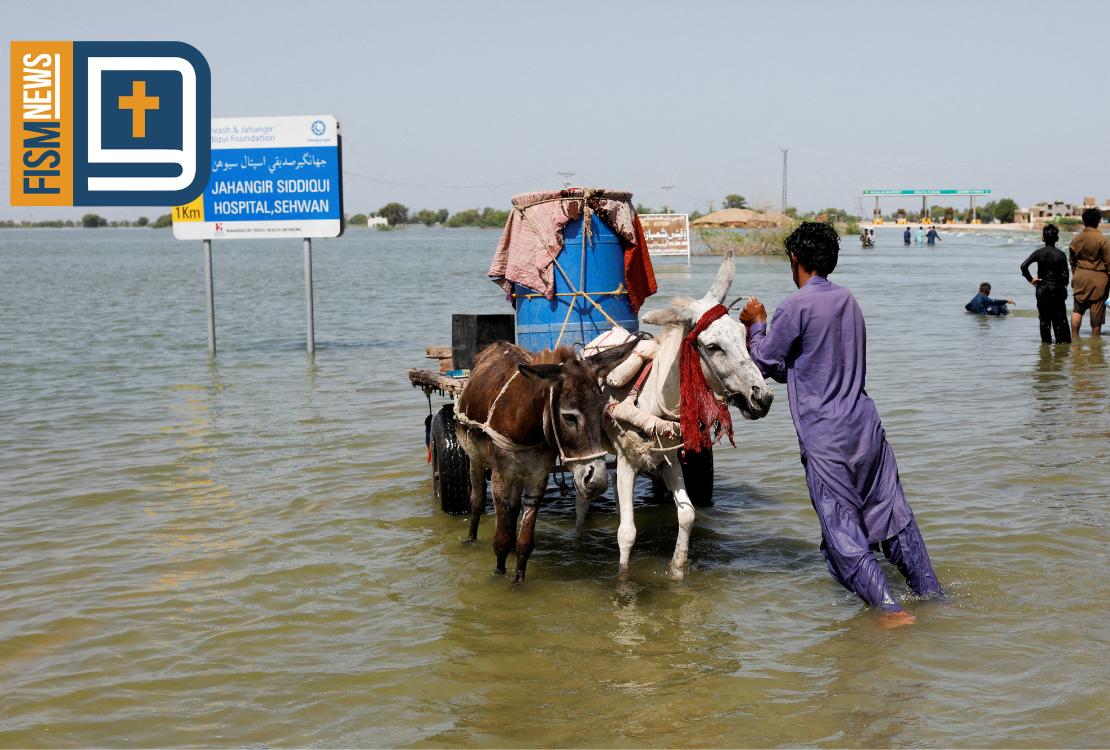
[elfsight_social_share_buttons id=”1″]
Countries hit by natural disasters such as flooding and hurricanes will automatically be able to freeze debt payments under new plans laid out by the bond market rule-setting International Capital Market Association (ICMA).
Devastating flooding in Pakistan has pushed it to the brink of a debt crisis in recent weeks and there are growing fears that far more countries will suffer frequent natural catastrophes.
ICMA’s move on Wednesday introduced new “climate resilient debt clauses” (CDRCs) that countries can now plug into the government bonds they sell to raise money on the international capital markets.
They are the result of a UK-convened working group that included G7 governments as well as the International Monetary Fund, World Bank, major U.S and European banks, investment firms, and lawyers.
Any country that uses them will be able to defer their debt payments for a maximum of 2 years, with the aim of giving them enough financial breathing space to provide aid and support to affected populations.
“As well as supporting disaster resilience by freeing up cash flow, CRDCs could help avoid the liquidity challenges faced by low-income countries in such circumstances becoming costly payment defaults,” ICMA said.
CRDCs are already used in Caribbean countries like Barbados and Granada which are regularly battered by hurricanes. The hope of the working group is that other nations in the Pacific, Africa, and Central and Southeast Asia will now use them too.
ICMA said while technically no country is excluded from using CRDCs, they were likely to be most suitable for low-income countries, Small Island Developing States, or other developing countries particularly vulnerable to natural disasters.
Leland Goss, ICMA’s General Counsel said the hope is that they will be timely with a wave of countries now facing debt crises in the wake of the COVID pandemic and sharply rising debt levels and interest rates.
As well as flooding and hurricanes, earthquakes, tsunamis, and droughts would all be covered by the clauses.
“If sovereign borrowers can avoid default at the time of a natural catastrophe, this will benefit both affected countries but also their creditors and the global financial system,” Goss said.
Editor’s Biblical Analysis
I recently wrote an analysis addressing unsustainable and dangerous personal debt in response to a story written by FISM News’ Ian Patrick about high-interest credit cards. The lesson here for nations is essentially the same: We should strive to stay debt free.
Whenever we take on debt, we must do so with diligent budgeting to assure that we are able to pay it off in a timely and responsible fashion.
Unfortunately, many developing nations have taken on massive amounts of debt to international banks — often with variable interest rates that have been climbing this year — with no clear path to ever being able to pay them off. Now the World Bank is estimating that dozens of developing nations will default on their debt in the next year.
Sadly, governments in many of these nations have taken out this debt in hopes of building a better, freer life for their people. However,
The rich rules over the poor, and the borrower is servant to the lender. – Proverbs 22:7 (NKJV)
Proverbs is filled with practical advice, including how to wisely and righteously handle money. It’s also filled with numerous warnings about foolish financial choices. The New International Version of the above verse is even harsher. It reads, “the borrower is slave to the lender.” And likewise, these poor nations are slaves to international banks.
While developing nations should stop taking out unsustainable debt, Christians in developed nations have a part to play, too.
The wicked borrows and does not repay, but the righteous shows mercy and gives. – Psalm 37:21
We must show mercy and give. We must find ways — and support those who do, such as India Partners — to help developing nations build their economies and prosper without taking on massive debt. If those who have the capacity to give generously do so to causes that build sustainable economic growth through Godly principles, developing nations can grow into developed nations able to pay off their debts.
Copyright 2022 Thomson/Reuters. Edits and Analysis by Jacob Fuller, FISM News.
